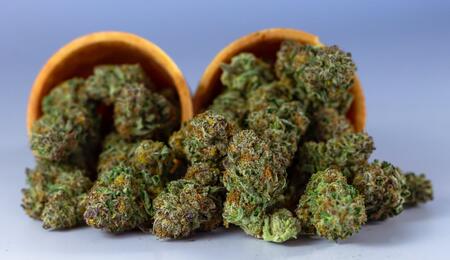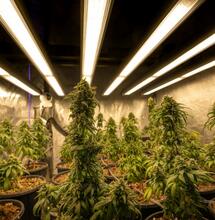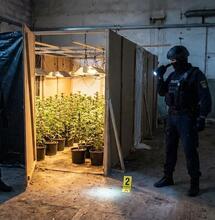Homegrow vs. Commercial Sales - Which is Better?

Homegrowing your own cannabis is currently allowed in a limited number of legal states, but even if it was permitted large-scale everywhere, not everyone would necessarily go for it. For obvious reasons: cannabis is easily accessible through legal dispensaries and available in a diverse range of products. For some users, it’s all they need - just the access and option to buy.
Homegrown Weed vs. Commercial Sales
People have been homegrowing cannabis long before the emergence of legal markets. Growing your own medicine is a skill that is learned, a wisdom that can be passed to others - more experienced to novice growers. It is the growing community that has produced some of the country’s finest cultivars.
Whether it’s grown indoors or outdoors, there are a number of things that need to be learnt regarding optimal plant environment, cannabis growth cycles, nutrition preferences, training plants, working with different types of strains, etc. It is not a small knowledge to obtain, and it can make an entire hobby or profession. The greatest satisfaction of any dedicated grower is being able to smoke the herbs that come out of your garden, thanks to your own labor and commitment.
Legalization has redefined the cannabis scene and its wider community of fans, users, growers and healers. If growing for personal use was seen as an act of breaching the law in the past, some of the legal states now permit cultivating a limited number of plants. Above that, legalization brought legal dispensaries where everyone can find all sorts of products: flower, concentrates, medibles, topicals, vapes, etc.
Of course, there are benefits and downsides for both homegrown and commercially-available weed sold in dispensaries. Weighing in the various factors, there’s no wrong or right - both work as options in the busy world we live in.
Different Costs
Growing cannabis at home can save you money long-term. In contrast, weed purchased at legal dispensaries is more expensive. The higher costs owe due to a number of things, including taxes, lab testing, costs for distribution, storage and more.
Quality Control
With homegrowing cannabis, you are responsible for the quality of buds you get. Less knowledge means more chances for errors, and in some cases, unwittingly working with contaminated soils and plants. But we assume that legally-sold cannabis is free of any contaminants, pollutants or pests, and that its quality was checked before arriving on the shelves.
Pesticides and Contaminants
You oversee what goes into the soil or what is sprayed onto the foliage when taking care of your own plants. Nutrient feeds can be entirely organic-based. With dispensaries, again we have to trust that this weed was not contaminated during transport or blasted with dangerous chemicals at any other point. The legal market is supposed to deliver safe cannabis for consumption. Legal manufacturers are obliged by law to test weed for pollutants. Still, there has been much controversy around false lab results lately. While this would not entail all legal retailers and testing labs - be sure that specimens from illicit black market weed almost always return positive results on contamination.
Convenience
Cannabis requires not only knowledge, but also time, resources and efforts for growing at home. For some it would be a hobby - for others a business. For caregivers, it would also be an obligation to produce high-quality clean flower that would help patients recover. For those who cannot dedicate enough hours and extra work required to maintain a grow room (unless you automate processes), commercial cannabis is the next best option.
Variety
Most homegrowers would be able to cultivate one or two different strains at the same time. In contrast, when you enter a dispensary you can find many different strains and you can talk to a budtender who can make suggestions based on what you’re looking for.
Sustainability
Having your own garden or grow room could be about sticking to entirely organic and natural methods of growing, and save for the risk of crop failure - it’s about being self-reliant and securing your own smoke at all times. With commercial cannabis, we don’t know exactly what happens before it reaches the point of sales. But besides that, dispensaries are a consistent and reliant source of cannabis these days.
Quality and Safety Risks
Not every home grower will produce high-grade cannabis buds. Many try growing and then quit, which is just a normal-people-thing to do. Occasional users in particular, are happy to just buy freely and indulge in their free time. Risk factors are not exclusive to one or the other, anyway. Recent reports revealed about the tragic demise of two growers. The separate cases showed their deaths spurred from bat guano, a known fertilizer for cannabis. But those would be rare and isolated accidents. Health risks are present in the cannabis industry, too. Most notably, it is the rise of allergies and asthma cases among workers continually exposed to cannabis pollen and plant material.
Also read on Soft Secrets:












